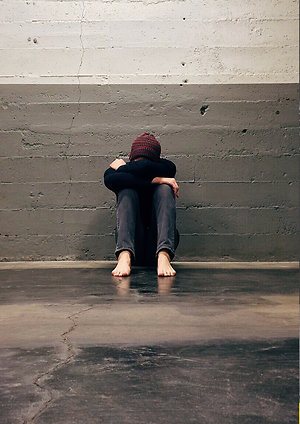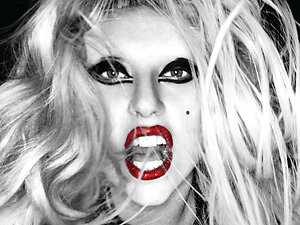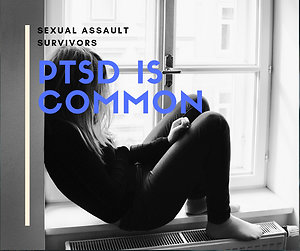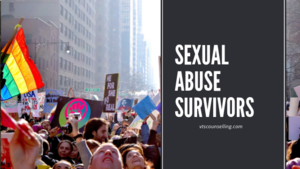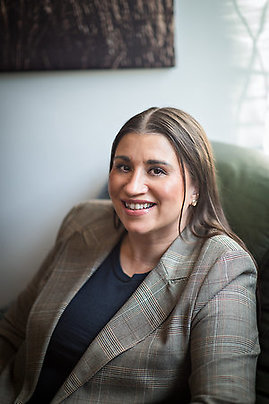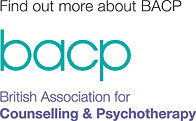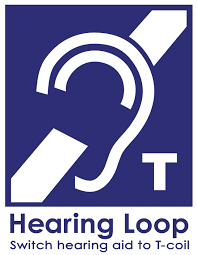Complex Trauma
If you have faced abuse, sexual violence, childhood sexual abuse, domestic violence or rape you may have experienced a trauma that has left you with complex ptsd to process and deal with. I say may, because not everyone faces complex trauma after a traumatic event, however if you do it is real.
Mostly you can be left with feelings of anxiety and depression after a trauma, very normal, and there are lots of ways to deal with them. Processing the event can be useful along with other behavioral changes you can do, you can also learn that it is not part of your future because it was not your fault. Education can help you to see the anxiety is not real and mindfulness can bring you into the moment with grounding. Even when you feel disconnected you can remind yourself you are loved and supported.
Complex trauma is different, it starts with the trauma but then as your feelings of anxiety and depression don't and won't go away you start to feel shame, which in turn becomes toxic shame. This is when you start to feel bad for feeling bad. Your feelings about the trauma become confused so that you start to feel you are a failure and inadequate for not being able to deal with the trauma.
The trauma has become the living trauma because it happened and your flashbacks are more real because it did happen and it could happen again, in your future. Most people who suffer from anxiety are fearful of the future, but living with complex trauma can make you fear the future because of the past.
If you are feeling this way it may be that interventions that help deal with anxiety and depression may not be effective. You first may need to remove any abusive reminders or messages and any enablers that aided the abuse. A safe and secure environment needs to be created so that you can deal with complex trauma. Sometimes this is not possible to create a 100% abuser free environment. The traumatised person needs this safety to deal with their anger, grief, despair that is inside them and causing the hyper-vigilance and other anxieties. Also getting rid of others who mirrored the abuse or enabled it. As I said not always possible, unfortunately this means being present in the moment is not possible in stress and you can be triggered into a flashback by anything in your present environment.
If you are feeling this way a therapist who has an understanding of complex trauma and how it is different can help with understanding and lessen confusion. You can deal with it by telling your story, using your memories and bringing awareness to what your brain and body are dealing with.
Coercive Control
Coercive Control is the backbone to domestic abuse and violence. It can be worse than violence because it is invisible, however the damage is huge. It a type of emotional and psychological abuse aimed at stripping a person of their self-worth and agency. It is gaslighting your reality until you feel unable to make any decisions about yourself or your person.
Ireland has recently changed the law on Domestic Violence and made it a crime. The Domestic Violence Act 2018 went into effect on Tuesday 8th January 2019 and provides new protections for victims of coercive control.
In a 2014 European Union Agency for Fundamental Rights (FRA) pan-European survey on violence against women, almost a third of Irish women (31%) said they had experienced psychological abuse by a partner. A further 23% of respondents said they had experienced controlling behavior, 24% said they had experienced abusive behavior, and 12% said they had experienced stalking (including online stalking). CNN News https://edition.cnn.com/2019/01/02/health/ireland-coercive-control-domestic-abuse-intl/index.html
This is a first for a country that has seen women suffer for years in fear of their lives and children's lives. The only way to stop an abusive partner is with the law, otherwise they have nothing to loose and the abuse continues.
Men also suffer #domesticviolence and the damage is the same, the abusive partner will not stop until they are stopped by the law. Men can sometimes feel that they have no one to turn to, the police are there to help all victims who suffer.
Below is the helpline for living without abuse who are an organisation aimed at helping people who suffer abuse. This group offer support for anyone suffering domestic violence.
0808 80 200 28
www.lwa.org.uk
White Ribbon
This charity highlights Domestic Violence, which includes emotional bullying and the treatment of women in society that is abusive, but is largely unnoticed. Here are some statistics about what can happen, I am aware that sexual assault happens to men and that they can also be subjected to domestic violence, but, the figures still have women the highest who are effected.
Sexual Assault
• 85-90% of sexual assault victims are women.
• There are 1,070 rape convictions each year in England and Wales.
• 90% of rape victims know the perpetrator.
• Over 400,000 women are sexually assaulted in England and Wales every year.
• An estimated 85,000 women are raped in England and Wales every year.
Domestic Abuse
• In 2011/12, Police reported nearly 800,000 incidents of domestic violence.
• 31% of women have experienced one or more instances of domestic abuse since the age of 16.
• On average, 2 women are killed every week by a current or former partner.
Female Genital Mutilation
• 23,000 girls under 15 are at risk of FGM every year in the UK.
• An estimated 66,000 women living in England and Wales have been subject to FGM.
• FGM was made illegal in 1985, but so far there have been no convictions
Forced Marriage
• In 2012, 1,485 cases of forced marriage were dealt with by the Forced Marriage Unit.
• 82% involved female victims.
• The oldest victim was 71.
• The youngest victim was 2.
Putting an end to violence
• Rape Crisis is working to raise awareness and understanding of sexual violence in England and Wales.
• Refuge supports women and children who have experienced domestic abuse, providing them with refuges, community outreach programmes and lobbying campaigns.
• Women’s Aid aims to end violence against women by influencing laws, raising public awareness and implementing education programmes.
• The Guardian is working with Fahma Mohamed to encourage schools to be vigilant about FGM.
• Plan UK runs the ‘Because I Am A Girl’ campaign to keep girls in school and prevent forced marriages.
• White Ribbon UK encourages men to be part of the conversation, to speak out and be active bystanders when it comes to abuse and violence against women and girls; and promotes positive masculinity in men and boys.
Who to call: Rape Crisis Freephone Helpline 0808 802 9999 www.rapecrisis.org.uk
National Domestic Violence Freephone Helpline 0808 2000 247 www.refuge.org.uk www.womensaid.org.uk
NSPCC FGM Helpline 0800 028 3550 www.nspcc.org.uk
Forced Marriage Helpline 0800 5999 247 www.karmanirvana.org.uk
Sources www.hmic.gov.uk/publication/rape-monitoring-group-digests-data-and-methodology-2014 www.gov.uk/government/publications/an-overview-of-sexual-offending-in-england-and-wales www.womensaid.org.uk/domestic_violence_topic.asp?section=0001000100220036 www.who.int/mediacentre/factsheets/fs241/en/index.html www.who.int/mediacentre/factsheets/fs239/en www.gov.uk/government/uploads/system/uploads/attachment_data/file/141823/stats_2012.pdf www.nspcc.org.uk/inform/resourcesforprofessionals/minorityethnic/female-genital-mutilation_wda96841.html www.icrw.org/child-marriage-facts-and-figures www.theguardian.com/end-fgm
Lady Gaga
Words from the lady herself about the memory and trauma after watching the Kavanaugh Hearing and Dr Fords testimonial about the alleged rape that took place and speaking on The Late Show;
If someone is assaulted, or experiences trauma, there is science, and scientific proof, it’s biology, that people change. The brain changes. And literally, what it does, is it takes the trauma and it puts it in a box, and it files it away and shuts it so that we can survive the pain.
This is what happens, the brain changes, it effects your memory because your brain was saving your life not making memories. Fragments may come back, or not. The science behind this is done with brain imaging and MRI scans.
#traumacounsellor
Childhood Sexual Abuse (csa)
Have you suffered sexual abuse whilst you were a child. If so the chances are it still affects your day to day life. Perhaps your relationships break down and you feel unable to function at work? Maybe you are feeling frightened because you are pregnant or have just given birth and the feelings are becoming to much for you to deal with.
Without therapy CSA can continue to shape the way you have to live your life - the triggers, flashbacks, mood swings and complete confusion and anger at what happened to you, can start to overwhelm you. The effects can be devastating. Perhaps you are left with the feeling that it was all your fault. It was not your fault, you survived a horrible ordeal, which was all you had to do.
Were you groomed by someone older or a person who had more power than you; like a supervisor, a teacher, a work colleague or a friend? They do not have to be much older, maybe a few years. This can lead to confusing feelings of fear and excitement, which lead on to sexual abuse. It is a little known situation and has been termed betrayal trauma becasue the perpetrator was a trusted person. Maybe you felt flattered and tried to make sense of it by boasting to your friends. It was not your fault.
“Every single minute matters, every single child matters, every single childhood matters. "
Kailash Satyarthi
Sexual Violence
Have you been raped, or think you have been? Did someone attack you sexually, maybe you were out at a nightclub and someone touched you without you wanting them to? Has someone, you trusted, acted in a sexual manner that frightened you? Did this happen to you some years ago, or just last week? Do you fear telling anyone in-case you would be judged? Do you, not want to be that person who was attacked?
If you feel any of these questions speak to you, and you would like to come for a session, you can have a free telephone conversation first, if you like. Remember, all sessions are confidential. Sometimes the hardest move is the first move. Make it today, you have already been brave enough to read my website and some pretty honest questions about Sexual Violence, so the rest is relatively easy, or not as hard as living with the pain and shame.
Rape, sexual assault, sexual misconduct and sexual indiscretion are all things that are horrible abuses, they cross cultures, gender, age and class. The only person to blame is the attacker.
The #MeToo movement has brought this into the media spotlight. We already knew it was happening, it is just that some of us did not know what to do with our anger, what to do with the feelings that had become overwhelming.
When you have been attacked in this way, you may suffer Post Traumatic Stress Disorder, which is a normal reaction to trauma. The brain processes trauma in a special way, which can lead to ptsd, you may not suffer this, everybody has their own individual reaction.
PTSD includes symptoms like;
Increased anxiety
Emotional arousal
Hypervigilance (On constant ‘red alert’)
Intense physical reactions to reminders of the event (e.g. Pounding heart, nausea, muscle tension, sweating)
Irritability or outbursts of anger
Irrational and intense fear
Reduced tolerance to noise (hyperacusis)
Difficulty concentrating
Being easily moved to tears
Panic attacks/anxiety/depression/mood swings
Feeling jumpy and easily startled
Difficulty falling or staying asleep
Anger or aggressive behaviour
Tense muscles
Avoidance and numbing
Work-related or relationship problems
Inability to remember important aspect of the trauma
Loss of interest in activities and life in general
Sense of a limited future
Feeling numb and empty
Avoidance of people and places
Feeling isolated
Frequent periods of withdrawal into oneself
Re-experiencing the traumatic event
Flashbacks (Acting or feeling like the event is happening again)
Nightmares (either of the event or of other frightening things)
Feelings of intense distress when reminded of the trauma
Other common symptoms
Feeling suicidal
Self harm and self-destructive tendencies
Feeling distrustful and suspicious/blaming others
Guilt, Shame, embarrassment or self blame
Misuse of alcohol/drugs/gambling and/or food
Exhaustion
Seeking out high-risk/dangerous pursuits
Physical aches and pains
Over-reactions to minor situations
Fear of being alone and fear of being in crowds
With therapy the symptoms can be dealt with and the surrounding confusion can be understood. You can learn to live with PTSD. If therapy is not enough, there are other treatments available. For example, Eye Movement Desensitization Reprogramming (EMDR) is very effective in treating PTSD. This is not available with me.
Follow this link for more info on ptsduk.
#MeToo
This hashtag started with Rose McGowan accusing Harvey Weinstien of Rape and the actress Alyssa Milano starting a twitter hashtag, wait a minute, no it didn't! It started with a black woman called Tarana Burke who was working with black girls and women in NYC, she wanted to highlight the plight of sexual assault survivors in a world where they have very little worth and no voice.
Burke, founder of youth organization Just Be Inc., created the “Me Too” campaign in 2007 long before hashtags even existed, she created the campaign as a grass-roots movement to reach sexual assault survivors in underprivileged communities.
It is called 'whitewashed' when feminist movements are 'hijacked' by white women, although black women were the origin. In this particular movement the 'white woman' has tweeted thanks to the 'black woman' for starting it! I believe this to be true and her sincerity, it again highlights what we are up against, not only by reporting sexual harassment, abuse, attack, but then it being made to look pretty and white, so it is easy on the eye!
“It wasn’t built to be a viral campaign or a hashtag that is here today and forgotten tomorrow,” Burke told Ebony on Monday. “It was a catchphrase to be used from survivor to survivor to let folks know that they were not alone and that a movement for radical healing was happening and possible.”
The importance of telling your story, to whom ever you want to, is huge! Not only are you acknowledging your pain but you are also admitting to yourself that you believe you! I have worked with sexual abuse survivors, are you one, are you tired of the struggle and rage you feel? You can heal to have a better life.
Domestic Violence and Abuse
This is the silent sexual and violent abuse that happens behind closed doors.
If you feel frightened about going home. If you live in fear. If the once loving relationship become cold and scary. If you have to fulfill certain obligations daily, like; making dinner, keeping the house clean, being willing and able for sex. If you are often told you can't do things right and get them wrong. If your opinion is always the wrong one in the room. If you have started to isolate from friends because it is easier than constantly breaking off dates. If you need to ask your partner for money because they control the family finance; this could be abusive behaviour and relational trauma.
If you have pleaded with your partner to stop making your home an unsafe place to be, and have been ignored, these can all be signs of a Domestic Abuse situation.
This is a hard and stressful life but you do not need to suffer alone. I will accept a referral from another on your behalf; if making the first move is too hard.
Having support in these situation and identifying how the need to feel safe is important and can be overlooked by sociaety; especially if it see's the partner as more capable and taking care of things at home.
FGM - Female Genital Mutilation
This has been described as a religious, cultural practice and people have felt it is racist to call it harmful. It is secretive and most people know nothing about it. Some of the countries in the world it is practiced in are not third world, places like Egypt.
Children, girls, are subjected to cutting and mutilation of their vagina and genitals. In some countries it is seen as a rite to womanhood and girls may not marry until it is done. However, the complications, even death, that can occur far outweight the cultural and traditional reasons for doing it.
If you have been affected by this and would like to talk, please get in touch. (I have been trained in the terms and details of the mutilation that takes place by the NHS.)
How compassion can change your experience
Compassion is not something we readily show for ourselves, we can show it for others, especially a baby, toddler, old person. Generally it is who we see as vulnerable.
However, when we learn to feel compassion for ourselves we open up a world of understanding and eventually leading to a feeling of forgiveness that lends itself to great calm and contentedness.
The Forgiveness Project is an organisation that tells peoples stories about how they were able to forgive and show compassion for people who had done them great harm, you can find a link here.
Restorative Justice is also a project, in some prisons, that allows people to come together, with the sole purpose of transformation.
Once we start on the journey of forgiveness it can feel scary, or even wrong, "why should I forgive them, they hurt me?!"
If you decide this is something you are interested in I can guide and support your journey to compassion and forgiveness.
